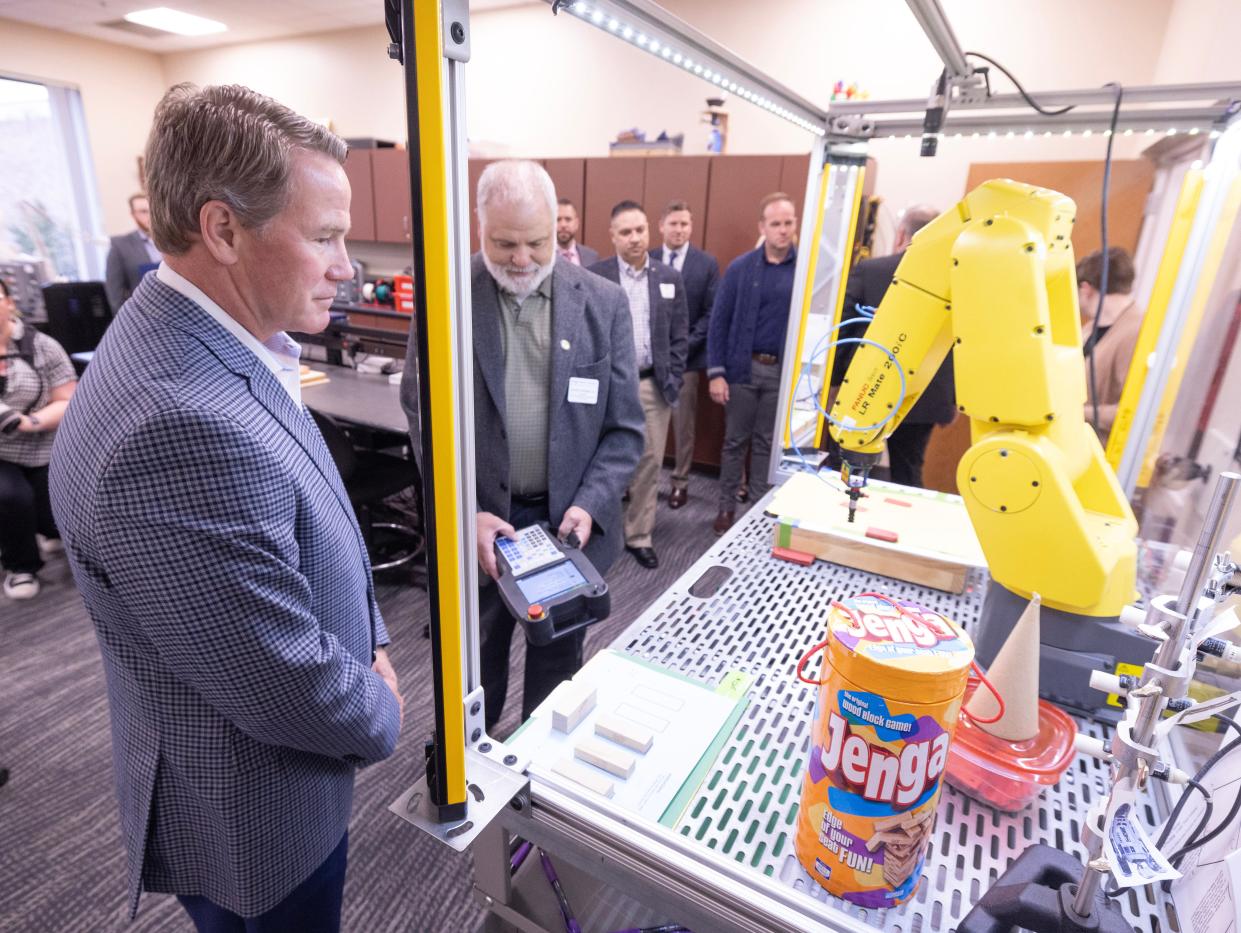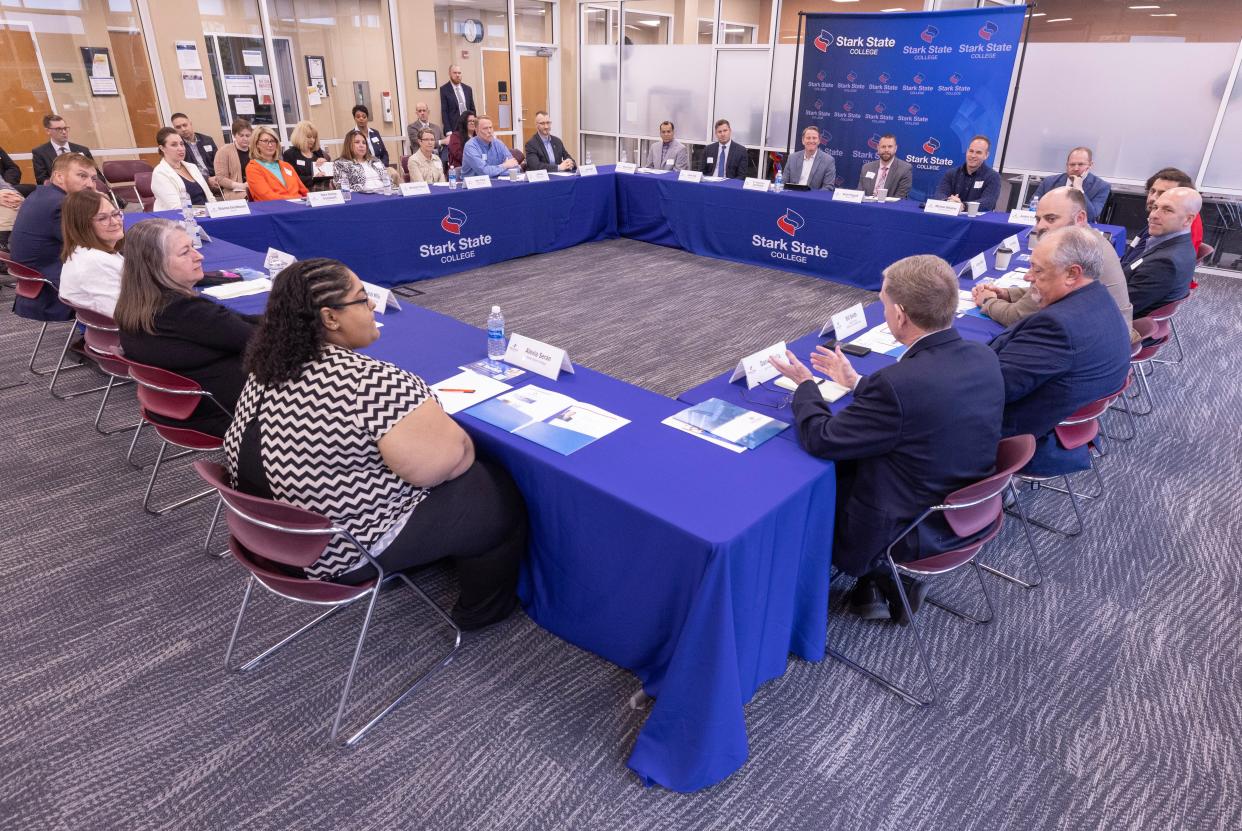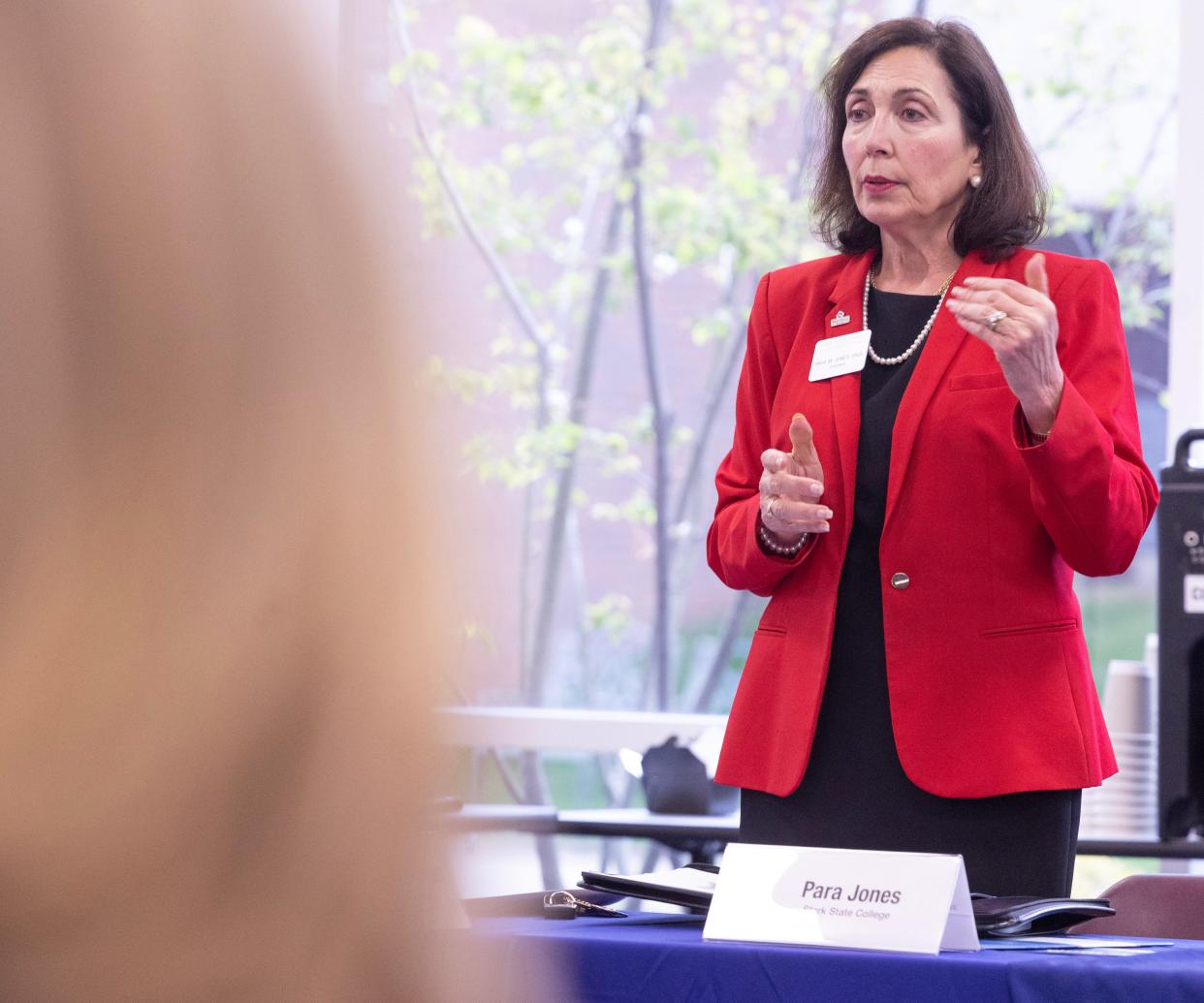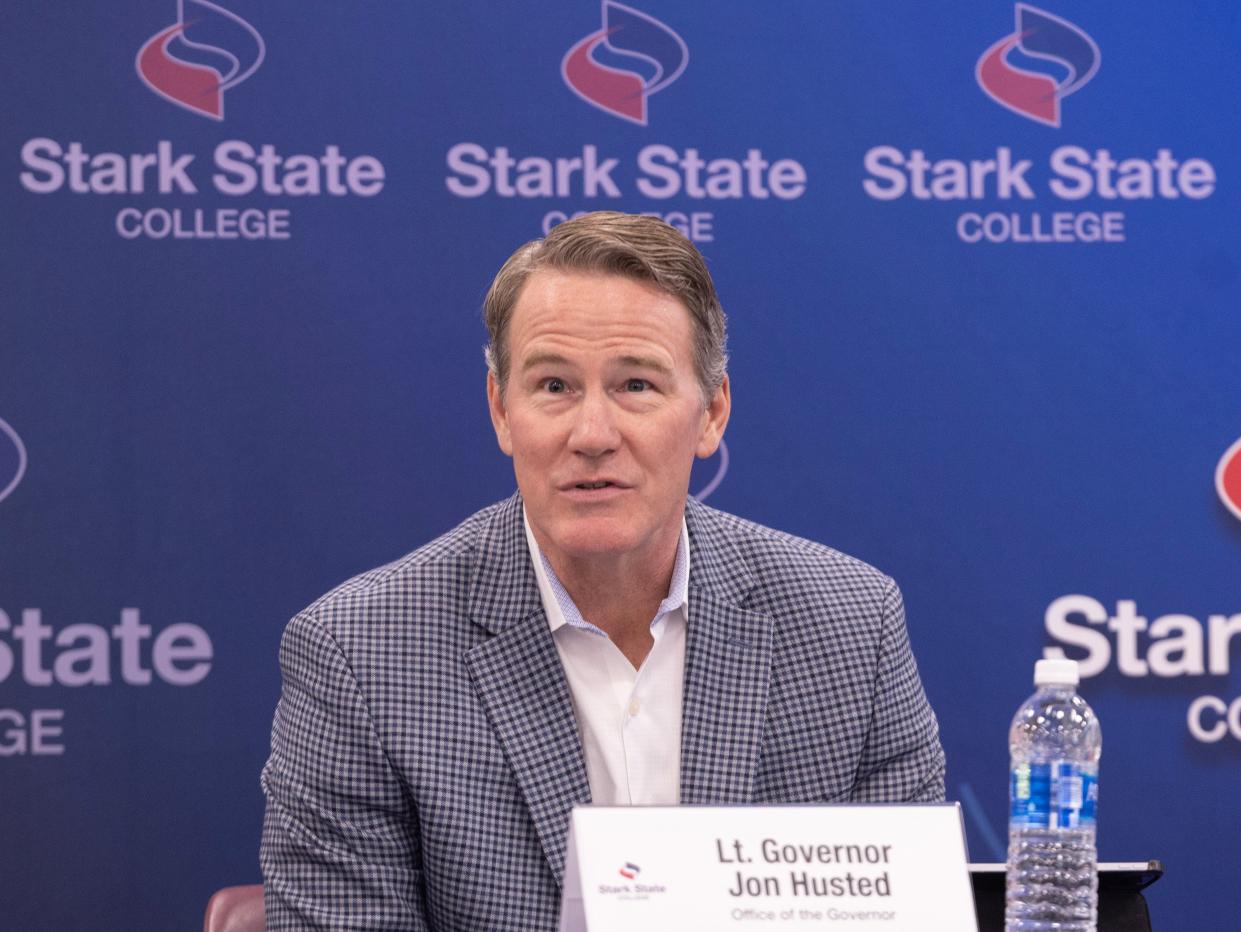Lt. Gov Husted, panel at Stark State discuss need to seize AI opportunities

JACKSON TWP. − Lt. Gov. Jon Husted and a panel of industry leaders, academic educators and students are especially optimistic about the potential of artificial intelligence (AI).
"Innovation is the foundation for the world we live in today," Husted said Friday at Stark State College.
He stressed the importance of embracing "assistive technology" ― which includes virtual assistants like Alexa or voice-to-text transcription software ― so that Ohio businesses and workers don't miss opportunities. Panel participants shared examples of how AI made business operations more efficient and safe and how it could improve a person's overall quality of life and give American manufacturing a competitive advantage.
Most said they were there to learn from one another. Stark County Commissioner Bill Smith said he considers AI another component to diversifying the area's economy.
"This is exciting," he said. "It's just another piece of the puzzle we have."

The approximately 20-person group met for a roundtable discussion on National AI Literacy Day in the W.R. Timken Center for Information Technology. The center was built about 20 years ago when it became apparent that technology and automation were merging with automation and manufacturing, said Para Jones, president of Stark State College.
"Here we are 20 years later with a new AI lab," she said.

Husted toured the Intel/Dell AI lab, which is equipped with high-powered computers, and the adjacent electronics circuits lab filled with computers and robotic and 3D printing equipment. The lab and the college's AI training curriculum were created by a $40,000 grant from Intel, Dell Technologies and the American Association of Community Colleges.
Stark State is participating in Intel’s AI workforce readiness program, which provides community colleges with AI training content to better prepare the workforce for jobs that involve AI. The college created two AI certificate programs that will be offered this fall, and Jones said more certificates or an associate degree could be added in the future.
"What we're doing in education is trying to keep up and think ahead," she said.

Highlights from the event include:
Kevin Hoggart, Intel's director of state government affairs for Ohio, said AI has existed for some time but has not yet been scaled. "At Intel, we believe AI is everywhere." He said the company is starting to embed specialized processors into personal computers so that they can use AI applications without needing additional bandwidth or cloud storage.
Harun Rashid, vice president of information services and chief information officer at Akron Children's Hospital, said the health system began a virtual nursing program six months ago using AI that pairs new nurses with experienced mentors. Another change is coming that will allow physicians to use a phone app to transcribe visits. Rashid, who also serves on the college's Board of Trustees, said those are examples of how AI can help eliminate "mundane and repetitive" tasks that contribute to "burnout."
Andrew Bissot, vice president of engineering, reliability, and manufacturing excellence at Metallus, said the steel company uses AI programs that can alert workers if they're in an unsafe location and check products for defects. "We are doing a variety of things, trying to improve safety," he said.
Several panelists discussed the societal fear that AI will eliminate jobs but said they see it as more of a transition to jobs with a different skill set. "It's not a threat to replace them," Husted said. "It's a collaboration to make them better."
Reach Kelly at 330-580-8323 or kelly.byer@cantonrep.comOn X: @kbyerREP
This article originally appeared on The Repository: Panel at Stark State discusses need to seize AI opportunities
